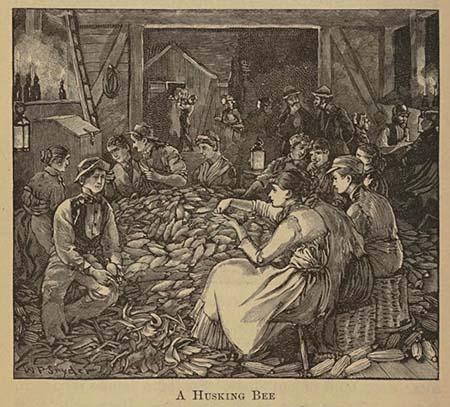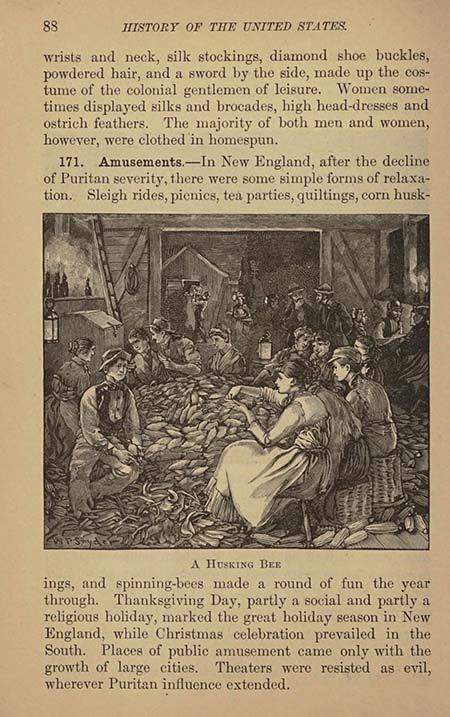Husking Bee (1750)
The job of harvesting corn and preparing it for use was a huge task for individual farms. One way to lighten the load was to invite neighbors to a husking bee. In addition to the actual gathering and huskingAlso called shucking; involved the removal of the husks, the external covering, of each ear of corn. The husks themselves could be used for feed for livestock, a mat or covering of dirt floors, or used to make dolls.,there were games and competitions and the sharing of a meal and conversation.
This image is from History of the United States by Frederick Hiram Clark, ca. 1750. You can read a PDF copy of this book and learn more about early Colonial Life from the Library of Congress at https://www.loc.gov/item/02005832/.

Clark, Frederick Hiram. History of the United States. Sketch. Sacramento, Cal., Printed at the State printing office [c1888]. From Library of Congress. https://www.loc.gov/item/02005832/ (accessed August 10, 2018).
Public Domain
Public Domain is a copyright term that is often used when talking about copyright for creative works. Under U.S. copyright law, individual items that are in the public domain are items that are no longer protected by copyright law. This means that you do not need to request permission to re-use, re-publish or even change a copy of the item. Items enter the public domain under U.S. copyright law for a number of reasons: the original copyright may have expired; the item was created by the U.S. Federal Government or other governmental entity that views the things it creates as in the public domain; the work was never protected by copyright for some other reason related to how it was produced (for example, it was a speech that wasn't written down or recorded); or the work doesn't have enough originality to make it eligible for copyright protection.
